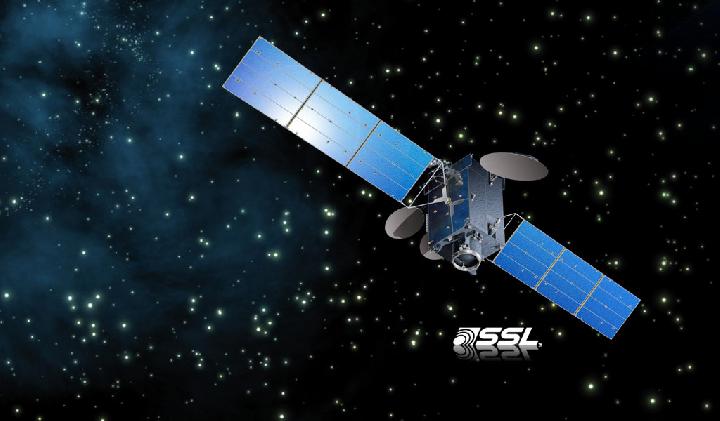
TEMPO.CO, Jakarta - The world’s most powerful rocket, SpaceX’s Falcon Heavy, roared into space through clear blue skies in its debut test flight on Tuesday from a Florida launch site where moon missions once began, in another milestone for billionaire entrepreneur Elon Musk’s private rocket service.
The 23-story-tall jumbo rocket, carrying a cherry red Tesla Roadster from the assembly line of Musk’s electric car company as a mock payload, thundered off its launchpad in billowing clouds of steam and rocket exhaust at 3:45 p.m from the Kennedy Space Center in Cape Canaveral.
Boisterous cheering could be heard from SpaceX workers at the company’s headquarters in Hawthorne, California, where a livestream feed of the event originated. At least 2,000 spectators cheered the blastoff from a campground near Cocoa Beach, 5 miles (8 km) from the space center.
Within three minutes, the Falcon Heavy’s two side boosters separated from the central rocket in one of the most critical points of the flight.
Then, capitalizing on cost-cutting reusable rocket technology pioneered by SpaceX, the two boosters flew themselves back to Earth for safe simultaneous touchdowns on twin landing pads at Cape Canaveral Air Force Station, about eight minutes after launch. Each rocket unleashed a double sonic boom as it neared the landing zone.
The center booster rocket, which SpaceX had predicted was less likely to be salvaged, slammed into the Atlantic at about 300 miles per hour (483 kph), destroying two of its thrusters and showering the deck of the nearby drone landing vessel, Musk told a post-launch news conference.
‘BIG RELIEF’
Still, the Silicon Valley mogul known for self-deprecating understatement hailed the launch as a victory and “a big relief.”
“I had this image of this giant explosion on the pad, with wheels bouncing down the road and the logo landing somewhere with a thud. But fortunately, that’s not what happened,” he said. “Crazy things come true.”
While the Falcon Heavy’s initial performance appeared, by all accounts, to have been near flawless, it remained to be seen whether the upper stage of the vehicle and its payload would survive a six-hour “cruise” phase to high Earth orbit through the planet’s radiation belts.
The launch, so powerful that it shook the walls of the press trailer at the complex, was conducted from the same site used by NASA’s towering Saturn 5 rockets to carry Apollo missions to the moon more than 40 years ago. SpaceX has said it aspires to send missions to Mars in the coming years.
The successful liftoff was a key turning point for Musk’s privately owned Space Exploration Technologies, which stands to gain a new edge over the handful of rivals vying for lucrative contracts with NASA, satellite companies and the U.S. military.
Falcon Heavy is designed to place up to 70 tons into standard low-Earth orbit at a cost of $90 million per launch. That is twice the lift capacity of the biggest existing rocket in America’s space fleet - the Delta 4 Heavy of rival United Launch Alliance (ULA), a partnership of Lockheed Martin Corp and Boeing Co - for about a fourth the cost.
The demonstration flight put the Heavy into the annals of spaceflight as the world’s most powerful rocket in operation, with more lift capacity than any space vehicle to fly since NASA’s Saturn 5, which was retired in 1973, or the Soviet-era Energia, which flew its last mission in 1988.
Propelled by 27 rocket engines, the Heavy packs more than 5 million pounds of thrust at launch, roughly three times the force of the Falcon 9 booster rocket that until now has been the workhorse of the SpaceX fleet. The new rocket is essentially constructed from three Falcon 9s bolted together side by side.
‘NEW SPACE RACE?’
Going along for the ride in a bit of playful cross-promotional space theater was the sleek red, electric-powered sports car from Musk’s other transportation enterprise, Tesla Inc.
The Tesla Roadster is supposed to be sent into solar orbit, on a path taking it as far from Earth as Mars. Adding to the whimsy, SpaceX planted a space-suited mannequin in the driver’s seat of the convertible.
Musk mused that “it may be discovered by some future alien race.” The white spacesuit was real, he said.
Whether the car arrived on its planned trajectory will not be known before late on Tuesday, SpaceX said. The roadster, which carries a plaque inscribed with the names of more than 6,000 SpaceX employees, could instead end up in perpetual Earth orbit.
The launch followed an impressive run of successful paid missions - 20 in all since January 2017, when SpaceX returned to flight following a 2016 launchpad accident that destroyed a $62 million rocket and a $200 million Israeli communications satellite that it was to put into orbit two days later.
Musk said he hoped Tuesday’s achievement would encourage a new “space race” by private ventures and other countries, an allusion to the 1960s Cold War contest between the United States and the Soviet Union.
“Space races are exciting,” he said.
SpaceX had previously announced plans to eventually use Falcon Heavy to launch two paying space tourists on a trip around the moon. Musk said on Monday he was now inclined to reserve that mission for an even more powerful SpaceX launch system, the Big Falcon Rocket, or BFR, whose development he said was proceeding more swiftly than expected.
REUTERS























